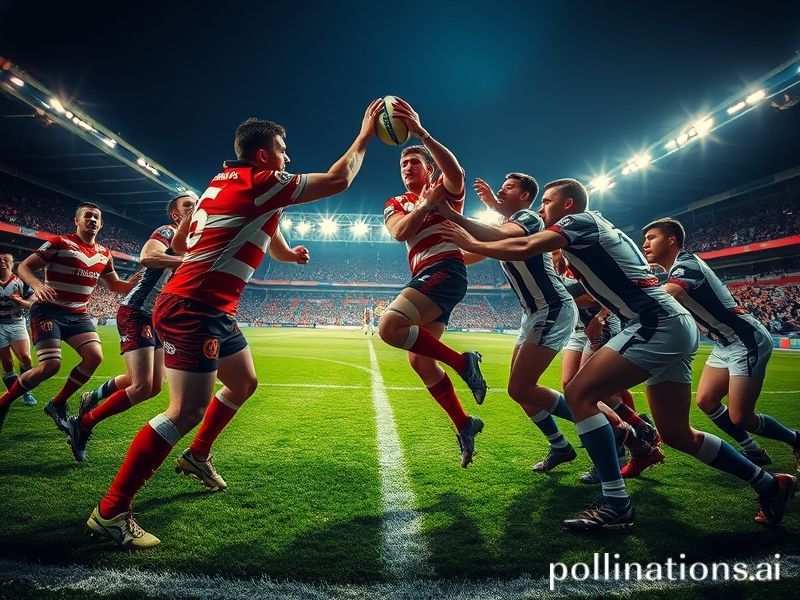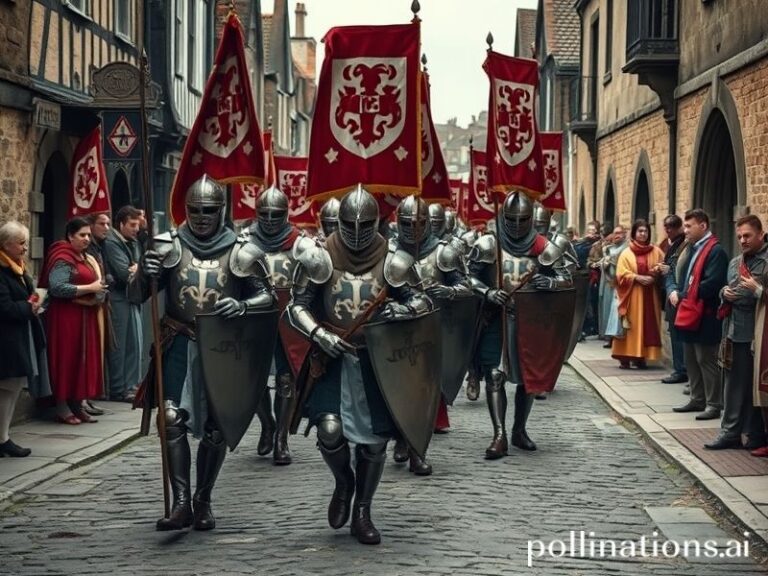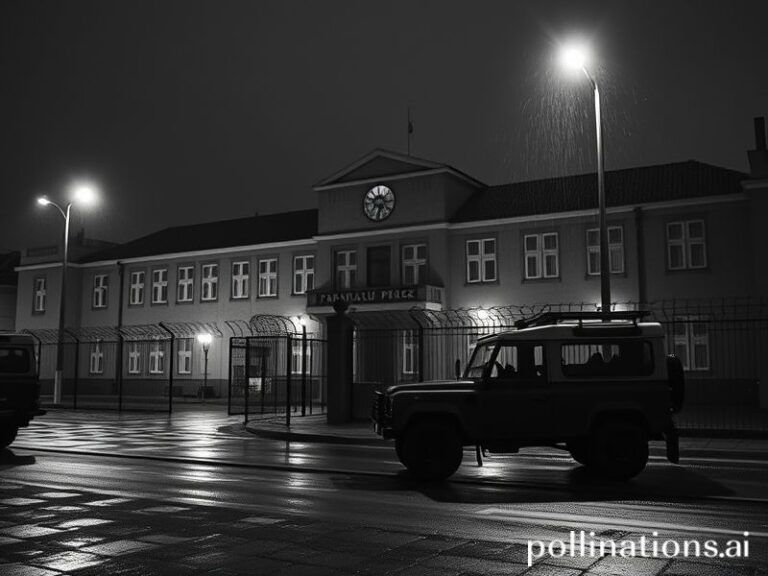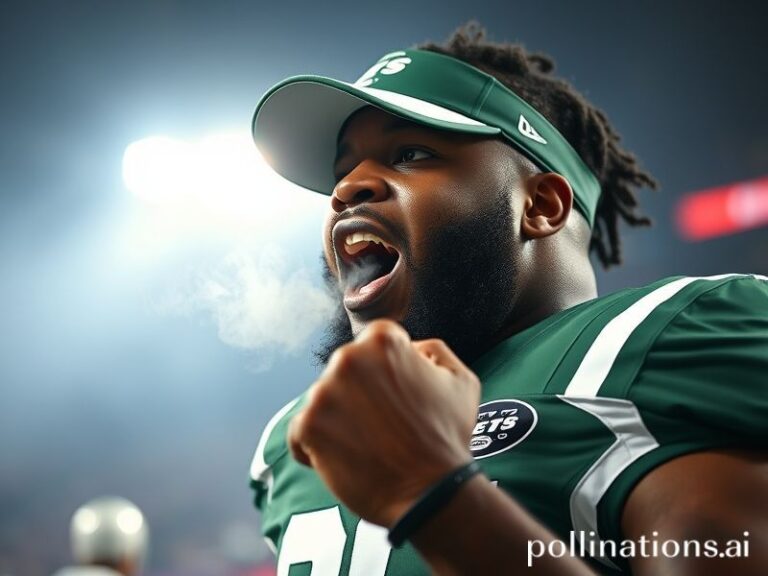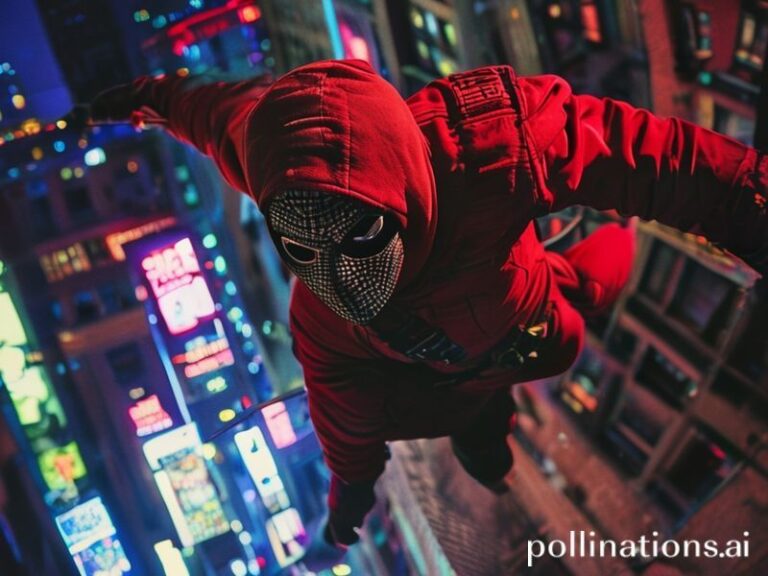Hull Derby 2024: When Two Rust-Belt Neighbours Weaponise Rugby to Forget the World Is Ending
Hull KR vs Hull FC: When Two Rust-Belt Neighbours Try to Murder Each Other with a Steeden Ball
By Ignacio “Nacho” Valdez, Senior Correspondent, Dave’s Locker
Somewhere between the Brexit hangover and the latest algorithmic recession, 26,000 shivering souls wedged themselves into a repurposed cargo port on the Humber to watch two teams from the same drizzle-soaked postcode attempt ritualised homicide. This, dear cosmopolitans, was the Hull Derby—Hull Kingston Rovers versus Hull FC—played last Saturday in a city whose tourism slogan might as well be “At Least We’re Not Grimsby.”
To the uninitiated, the fixture looks like rugby league’s answer to a civil war re-enactment, only with fewer muskets and more shoulder charges. Yet zoom out and you’ll notice the planet’s grander anxieties refracted through every hit-up. Two working-class tribes, separated by a river and a century of grievance, are auditioning for the role of “community” in an age when community is mostly a Wi-Fi password. The rest of us watch because, frankly, it beats doom-scrolling about the Arctic permafrost committing suicide.
Global Context: The Derby as Metaphor
In Buenos Aires, Boca and River Plate trade blows over which tango barrio is more authentic. In Glasgow, Celtic and Rangers weaponise centuries of religious trauma for 90 minutes plus stoppage time. Hull’s version is smaller, colder, and economically depressed enough to make Detroit look aspirational, but the choreography is identical: identity wrapped in polyester, sold back to the very people whose jobs were exported by the same sponsors now emblazoned on the chest.
Saturday’s match arrived the same week the IMF downgraded global growth—again—and TikTok discovered nuclear war ASMR. While central bankers debated whether inflation had peaked or merely plateaued like a mid-table halfback’s career, the Rovers and the Airlie Birds provided a simpler equation: 13 vs 13, winner gets bragging rights until Christmas or the next government reshuffle, whichever comes first.
On the Field: Ballet for the Clinically Cynical
Hull KR, the red-and-white half of this municipal divorce, came in as slight favourites owing to a wiry spine that passes the ball with the urgency of a teenager deleting browser history. They scored first through a winger who once worked nights at an Amazon warehouse, a biographical detail the broadcast team mentioned with the reverence usually reserved for Nobel laureates.
Hull FC, clad in black and white like an existential crisis, equalised when their full-back chipped, chased, and landed arse-first on the try-line—a manoeuvre that looked accidental but will be mythologised by local poets for decades. The second half degenerated into the kind of arm-wrestle that makes physiotherapists weep: sin-bins, blood bins, and one moment where a prop forward appeared to contemplate eating the opposition hooker. Final score: 20-16 to Rovers, prompting fireworks that cost roughly what the NHS spends on crutches in a fiscal year.
Worldwide Implications (Yes, Really)
Commentators like to claim the derby is “pure,” unsullied by the oil money sloshing around the Premier League or the geopolitical laundering schemes of certain Gulf-based golf tours. This is, of course, nonsense. Both Hull clubs are kept solvent by the same gambling conglomerates currently lobbying Westminster to let them live-stream roulette into primary schools. And the Sky Sports broadcast reached 127 territories, meaning a yak herder in Kyrgyzstan could watch two English port cities scream at each other over a pig’s bladder while his own village debated whether to sell livestock to pay the electricity bill.
Broader Significance: A Distraction We Can Afford
In a week when the Doomsday Clock ticked forward again—apparently it’s now 89 seconds to midnight, or roughly the time it takes a Hull prop to jog 20 metres—the derby offered a compact, 80-minute package of tribal catharsis. No drones, no supply chains, no crypto evangelists. Just flesh, mud, and the comforting illusion that someone, somewhere, still cares enough to hate their neighbour for sporting reasons rather than vaccine status.
As the crowd filed out past shuttered chip shops and discount vape stores, one could almost believe the world had narrowed to a manageable size. Then the PA system crackled with next week’s fixture list, reality rebooted, and everyone checked their phones for updates on the impending apocalypse. At least the Rovers fans went home smiling—until Monday’s direct debit reminder from the energy company arrived.
In the end, the Hull Derby isn’t about rugby. It’s about pretending, for a brief moment, that the stakes are only four competition points and not the entire social contract. And if that isn’t worth a £35 ticket plus overpriced lager, then frankly, nothing is.

